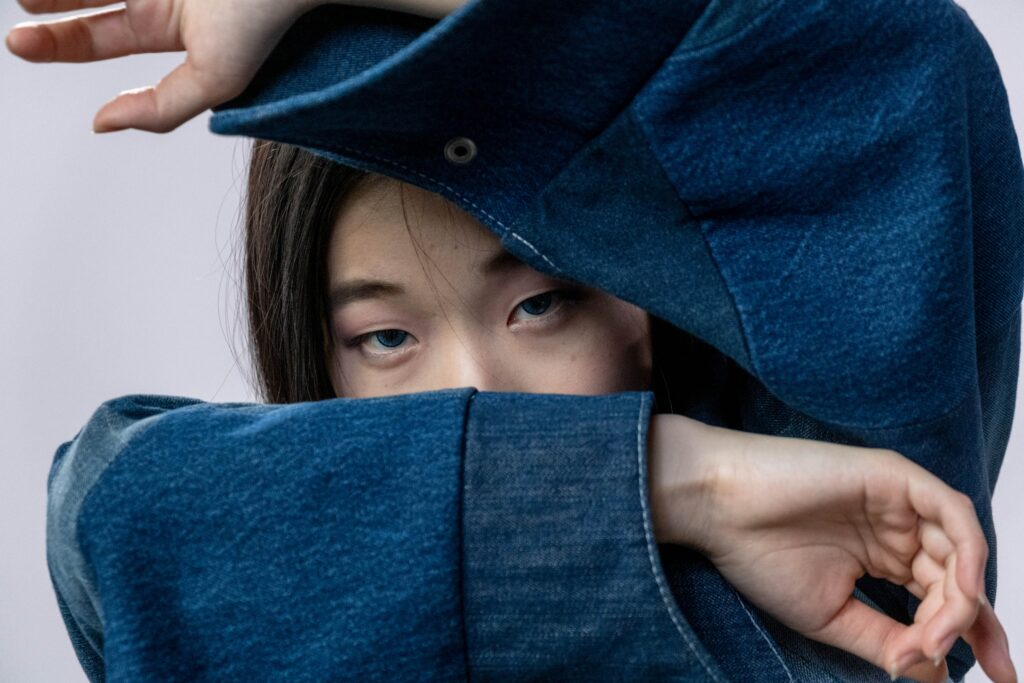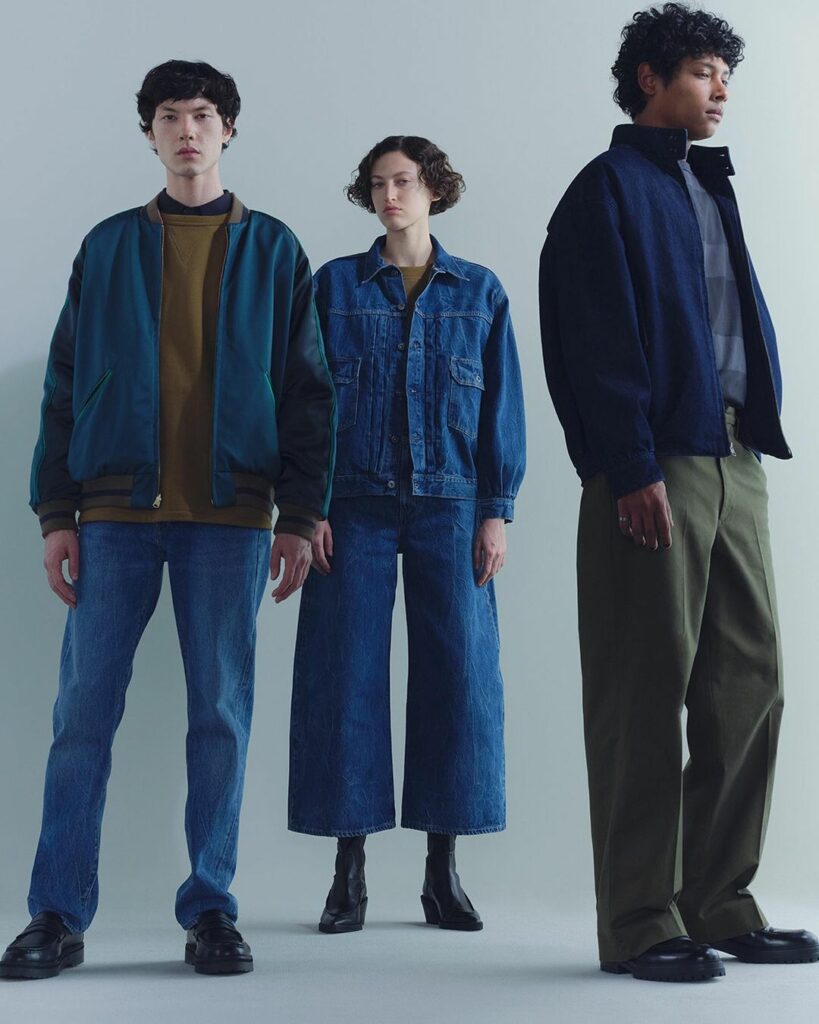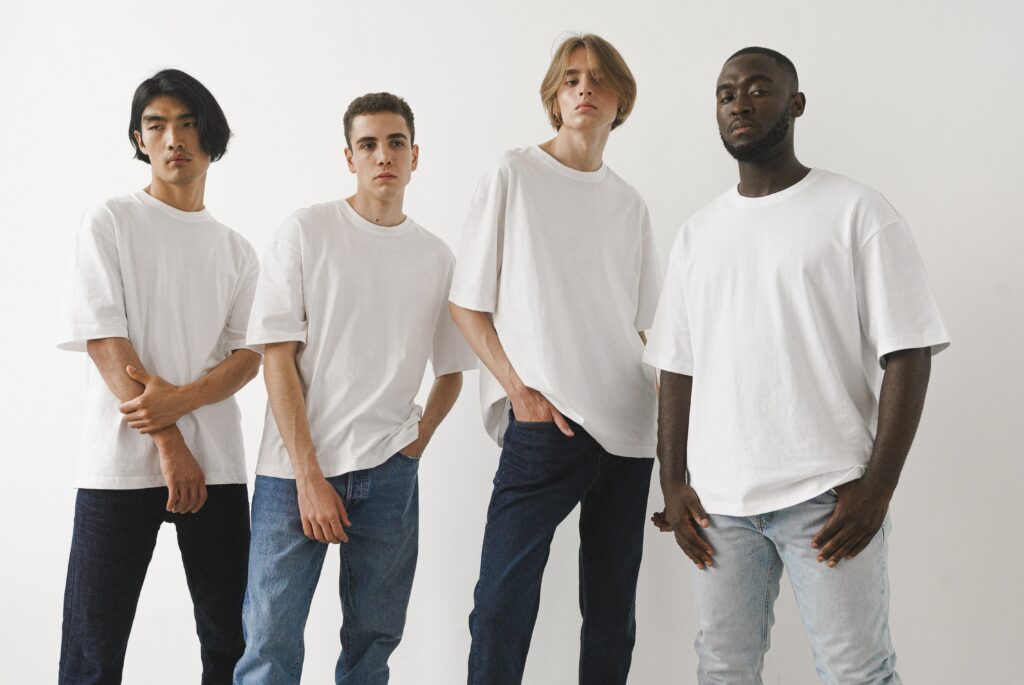Levi Strauss & Co., the parent company of Levi’s, is diving into the world of customized AI-generated models. Although using AI-generated models is not groundbreaking, it has gained more attention due to recent technological advancements. In the past, AI-generated models were mainly used in gaming and entertainment. However, with the rise of e-commerce and online shopping, fashion brands and retailers are now using these models. They are showcasing their products in a personalized and inclusive manner.
The adoption of AI-generated models brings forth a multitude of benefits, including heightened efficiency and sustainability. By creating astonishingly realistic models, fashion brands and retailers can showcase products that resonate with their customer base. These models represent diverse body types, ages, sizes, and skin tones. This approach promotes inclusivity, personalization, and contributes to a sustainable and harmonious shopping experience for both brands and customers.
Levi Strauss & Co. has plans to test this technology later in the year as an adjunct to human models. The company’s objective is to ethically expand the roster of models for its products, encompassing greater diversity. Such an endeavor has the potential to instigate a significant transformation within the fashion industry. Through this initiative, Levi Strauss & Co. is establishing a new standard, setting the bar higher for inclusivity and sustainability in the world of fashion.

Advanced 3D avatars create inclusive shopping experiences
According to Dr. Amy Gershkoff Bolles, LS&Co. global head of digital and emerging technology strategy, fashion and technology are both an art and a science. While avatars have been utilized as virtual 3D fashion fit models, and virtual influencers like Miquela have been featured in brand campaigns, the full potential of the technology to showcase fashion on diverse bodies is yet to be fully realized. However, with the emergence of advanced 3D avatar technology in eCommerce, fashion brands and retailers can now create inclusive and personalized shopping experiences for customers of all shapes, sizes, ages, and skin tones. This approach can lead to more sustainable and customer-centric practices in the fashion industry.

3D avatar modeling can showcase products on diverse body types
Levi’s understands that diversity, equity, and inclusion are the secret sauce to their success. They don’t just talk the talk, they walk the walk by setting clear goals, spilling the beans on employee demographics, and putting it all on the table. They believe in being upfront and holding themselves accountable.
However, when it comes to online representation, Levi’s still needs to smooth out some wrinkles. Right now, their website and app play a game of “Where’s Waldo?” with just one model per product, keeping their size under wraps. It’s like searching for a needle in a haystack, but with no thrill. This approach could rain on the parade of an inclusive shopping experience for customers.
To tackle this snag, Levi’s could dip their toes into advanced technologies like 3D avatar modeling. With that trick up their sleeve, they could put on a virtual fashion show that caters to a variety of body types, sizes, ages, and skin tones. It’s like strutting down the runway with a spotlight on everyone, making the shopping experience truly personalized and inclusive. That’s what I call dressing to impress!
All in all, Levi’s deserves a standing ovation for their commitment to diversity, equity, and inclusion. By sharing their journey and insights, they become a beacon of inspiration for other companies to step up their inclusivity game and work towards a future that’s fair and square for everyone.

The challenges in showcasing diverse models
Many fashion brands, especially those in the denim industry, face an uphill battle. Especially when it comes to presenting their products on various body types online. The costs of photography and website maintenance, combined with the constant influx of new product lines are exorbitant. This often pose a challenge for brands to keep up with the demand for diverse models.
Nevertheless, several brands have taken strides to exhibit their products on models of different sizes. For instance, Old Navy showcases women’s styles on models ranging from size 4 to size 18. Universal Standard takes inclusivity to the next level by demonstrating how their garments look on models ranging from size 0 to size 36, covering a wide spectrum. Additionally, Good American features jeans on models sporting sizes 0 and 16.
Levi Strauss & Co. grasps the potential of artificial intelligence in tackling these challenges and advancing inclusivity in the fashion industry. By combining human models with AI-generated counterparts, the company can showcase its products on a diverse range of models. These models represent various body types, sizes, and skin tones. This approach creates a personalized and inclusive shopping experience for customers. It also contributes to a more equitable and sustainable fashion industry.

Levi’s commitments are reflected in AI and human model combination
Dr. Amy Gershkoff Bolles, the global head of digital and emerging technology strategy at Levi’s, emphasizes the importance of human models in the company’s e-commerce strategy. While embracing artificial intelligence, she clarifies that AI-generated models will complement, not replace, human models to provide an inclusive and personalized shopping experience.
While AI technology offers benefits like showcasing products on diverse models, human models play a crucial role in the fashion industry. They bring a unique perspective and individuality that enhances the shopping experience and builds a connection between customers and brands.
Levi’s approach combines AI-generated and human models, showcasing their commitment to diversity and inclusion in their digital transformation. By blending technology and human creativity, Levi’s creates a tailored and inclusive shopping experience that meets the diverse needs of their customers.

Thrive in ecommerce with Tulfa’s exceptional eCommerce services
Tulfa, headquartered in Chicago, United States, is leading the charge in shaping the future of ecommerce. Taking a leaf out of Levi’s book, we firmly believe that the fusion of artificial intelligence and human models will soon be all the rage for brands aiming to offer customers a shopping experience that is more inclusive and tailored.
As a trailblazer in providing cutting-edge services like 3D product modeling, eCommerce product photography, and augmented reality, Tulfa is always on the cutting edge to meet the demands of our clients. Our proficiency in AI-driven tools such as automated image tagging and chatbots empowers businesses to optimize their product listings, attract more visitors, and enhance customer service.
As the ecommerce arena continues to evolve, Tulfa remains steadfast in delivering exceptional services to our clients. We are here to lend a helping hand to businesses as they navigate through this ever-changing landscape. Reach out to us at hello@tulfa.com to discover how we can bolster your business’s success.



